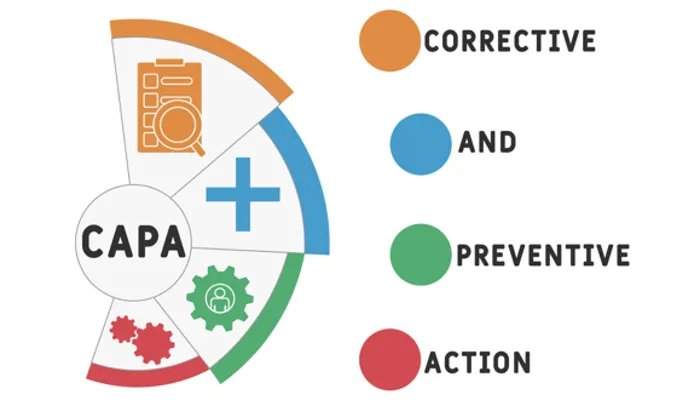Summary: For ISO 9001 certification, companies need a sturdy framework for quality management. Enter ISO, the International Organization for Standardization, provides guidelines and standards for quality management systems within the ISO 9000 family. ISO’s standards are based on seven fundamental principles of quality management, which assist companies in aligning their quality goals and quality objectives while ensuring improved customer satisfaction. The seven quality management principles outlined by ISO form the bedrock of effective quality management within businesses.
ISO: A Brief Overview
The ISO is an independent international organization that develops and publishes standards to ensure the quality, safety, and efficiency of products, services, and systems. ISO 9001 is a quality management standard that provides a framework for organizations to establish, implement, maintain, and continually improve their Quality Management Systems (QMS).
Plan: Quality Management Principles: A Foundation for Success
What is Quality Management?
Quality management refers to an organisation’s systematic approach to ensure that its products, services, and processes consistently meet predefined quality standards. It involves establishing processes, policies, and procedures to monitor and improve the quality of deliverables throughout the organization. By implementing effective quality management practices, businesses can enhance customer satisfaction, drive operational efficiency, and gain a competitive edge.
The Importance of Quality Management
Quality management is not merely a buzzword but a strategic imperative for organizations across industries. By prioritizing quality, businesses can:
- Meet and exceed customer expectations
- Enhance customer satisfaction and loyalty
- Improve product and service reliability
- Boost operational efficiency and productivity
- Reduce costs associated with rework and customer complaints
- Mitigate risks and ensure compliance with regulatory requirements
- Foster a culture of continuous improvement
ISO: Driving Quality Management Excellence
The International Organization for Standardization (ISO) is an independent, non-governmental international standard-setting body. ISO develops and publishes various standards that provide guidelines and frameworks for various aspects of business operations. Regarding quality management, ISO’s most renowned standard is ISO 9001.
ISO 9000 Series: Quality Management Standards
The ISO 9000 series comprises a set of international standards that define the requirements for establishing, implementing, and continually improving a QMS. ISO 9001, the series’s flagship standard, sets the QMS certification criteria. It provides a framework for organizations to streamline processes, enhance customer satisfaction, and drive continual improvement.
Benefits of ISO Certification
Obtaining ISO 9001 certification offers several advantages for organizations, including:
- Enhanced credibility and reputation
- Improved customer confidence and trust
- Access to new markets and business opportunities
- Increased operational efficiency and effectiveness
- Consistent quality and standardized processes
- Stronger supplier relationships
- Better risk management and regulatory compliance
Seeking a comprehensive solution for managing quality compliance?
Our eQMS provides the tools you need to streamline and optimize your processes effortlessly
Principle 1: Customer Focus
At the heart of quality management lies a deep understanding of customer needs. The first principle of ISO 9001 is customer focus. Organizations must identify and comprehend their customers’ requirements, striving to meet and exceed their expectations. By placing the customer at the centre of their operations, organizations can deliver products and services that truly satisfy their target market.
Principle 2: Leadership
Strong leadership is crucial for the successful implementation of a quality management system. Leaders within an organization must establish a clear vision, set quality objectives, and create a culture of quality throughout the workforce. By providing direction and support, leaders inspire employees to participate actively in quality improvement initiatives.
Principle 3: Engagement of People
The success of a quality management system relies on the engagement and empowerment of people at all levels of the organization. ISO emphasizes involving employees, recognizing their contributions, and providing them with the necessary resources and training. Engaged employees are more likely to take ownership of their work, identify opportunities for improvement, and contribute to the organization’s overall success.
Principle 4: Process Approach
ISO advocates for a process approach to quality management. Instead of focusing solely on individual tasks, organizations should view their activities as interconnected processes that collectively contribute to achieving quality objectives. Organizations can optimize their efficiency and effectiveness by identifying, understanding, and managing these processes, leading to improved overall performance.
Principle 5: Improvement
Continuous improvement is a cornerstone of quality management. ISO emphasizes the need for organizations to establish a systematic approach to enhance their performance continually. This involves monitoring Key Performance Indicators (KPIs), analyzing data, identifying areas for improvement, and implementing appropriate corrective and preventive actions. By embracing a culture of continuous improvement, organizations can stay ahead of the competition and adapt to changing market dynamics.
Principle 6: Evidence-Based Decision Making
To make informed decisions, organizations must rely on accurate and relevant data. ISO encourages evidence-based decision-making, where decisions are based on objective analysis and factual information. By gathering and analyzing data, organizations can gain valuable insights into their processes, identify trends, and make data-driven decisions that improve outcomes.
Principle 7: Relationship Management
Building solid relationships with internal and external stakeholders is essential for effective quality management. ISO emphasizes the importance of understanding the needs and expectations of interested parties such as customers, suppliers, and employees. By nurturing these relationships, organizations can foster collaboration, enhance communication, and create a mutually beneficial environment that supports quality objectives.
Implementing the 7 Principles in Your Organization
Now that we’ve delved into the 7 fundamental principles of quality management, let’s explore effective implementation strategies within your organization. Follow these steps to lay a solid foundation for quality management excellence:
1. Establish a Strong Leadership Foundation
- Clearly define your quality vision and objectives.
- Lead by example and demonstrate a commitment to quality.
- Allocate resources and empower individuals responsible for quality management.
- Communicate the importance of quality throughout the organization.
2. Foster a Customer-Centric Culture
- Understand your customers’ needs, expectations, and preferences.
- Gather customer feedback and leverage it to drive improvement.
- Train employees to prioritize customer satisfaction.
- Continuously monitor and measure customer satisfaction levels.
3. Engage and Empower Your People
- Involve employees in decision-making processes.
- Provide training and development opportunities to enhance skills.
- Create a supportive environment that encourages innovation and collaboration.
- Recognize and reward employees for their contributions to quality.
4. Embrace a Process Approach
- Identify and map key processes within your organization.
- Streamline and optimize processes to eliminate waste and inefficiencies.
- Define clear process objectives and performance metrics.
- Continuously monitor and analyze process performance data.
5. Drive Continuous Improvement
- Establish a system for capturing and analyzing quality data.
- Encourage employees to suggest improvements and implement their ideas.
- Implement corrective and preventive actions to address quality issues.
- Regularly review and update quality objectives and improvement plans.
6. Make Informed Decisions Based on Evidence
- Collect and analyze relevant data to gain insights into quality performance.
- Use data-driven tools and techniques for decision-making.
- Involve cross-functional teams in decision-making processes.
- Continuously monitor and evaluate the effectiveness of decisions.
7. Build Strong Relationships
- Collaborate closely with customers, suppliers, and partners.
- Establish clear communication channels and feedback mechanisms.
- Regularly review and assess the performance of your relationships.
- Seek opportunities for mutually beneficial partnerships and alliances.
Plan: Quality Management Principles Importance
Quality management principles are crucial for ensuring that organizations consistently deliver products and services that meet or exceed customer expectations. By adhering to principles such as customer focus, leadership, process approach, continuous improvement, evidence-based decision making, and relationship management, companies can enhance their efficiency, effectiveness, and reputation.
These principles provide a framework for organizations to cultivate a culture of quality throughout all aspects of their operations, ultimately leading to increased customer satisfaction, improved performance, and sustained success.
FAQ | Principles of Quality Management
What is ISO 9001?
ISO 9001 is a Quality Management Standard developed by ISO. It provides a framework for organizations to establish, implement, maintain, and continually improve their quality management systems.
What is ISO?
ISO stands for the International Organization for Standardization. It is an independent international organization that develops and publishes standards to ensure product, service, and system quality, safety, and efficiency.
How many quality management principles does ISO outline?
ISO outlines seven key principles of quality management. These principles are customer focus, leadership, engagement of people, process approach, improvement, evidence-based decision-making, and relationship management.
Why is customer focus important in quality management?
Customer focus is essential in quality management because it ensures that organizations understand and meet the needs and expectations of their customers. By placing the customer at the centre of their operations, organizations can deliver products and services that satisfy their target market.
What is the role of continuous improvement in quality management?
Continuous improvement is a fundamental principle of quality management. It involves systematically enhancing an organization’s performance by monitoring key performance indicators, analyzing data, identifying areas for improvement, and implementing appropriate actions. It helps organizations stay competitive and adapt to changing market conditions.
How has the history of quality management shaped modern practices?
The history of quality management has shaped modern practices by introducing key concepts such as Total Quality Management (TQM), Six Sigma, and Lean principles. These approaches emphasize continuous improvement, customer satisfaction, and efficient processes, which have become central to achieving high standards in today’s businesses.
How do quality management principles improve business performance?
Quality management principles improve business performance by streamlining processes, reducing waste, and enhancing consistency. This leads to higher efficiency, lower costs, and better customer satisfaction. By focusing on continuous improvement and clear communication, businesses can ensure sustained growth and profitability. (e.g., quality in manufacturing)
Image: Adobe Stock – Copyright: © Suriya – stock.adobe.com





